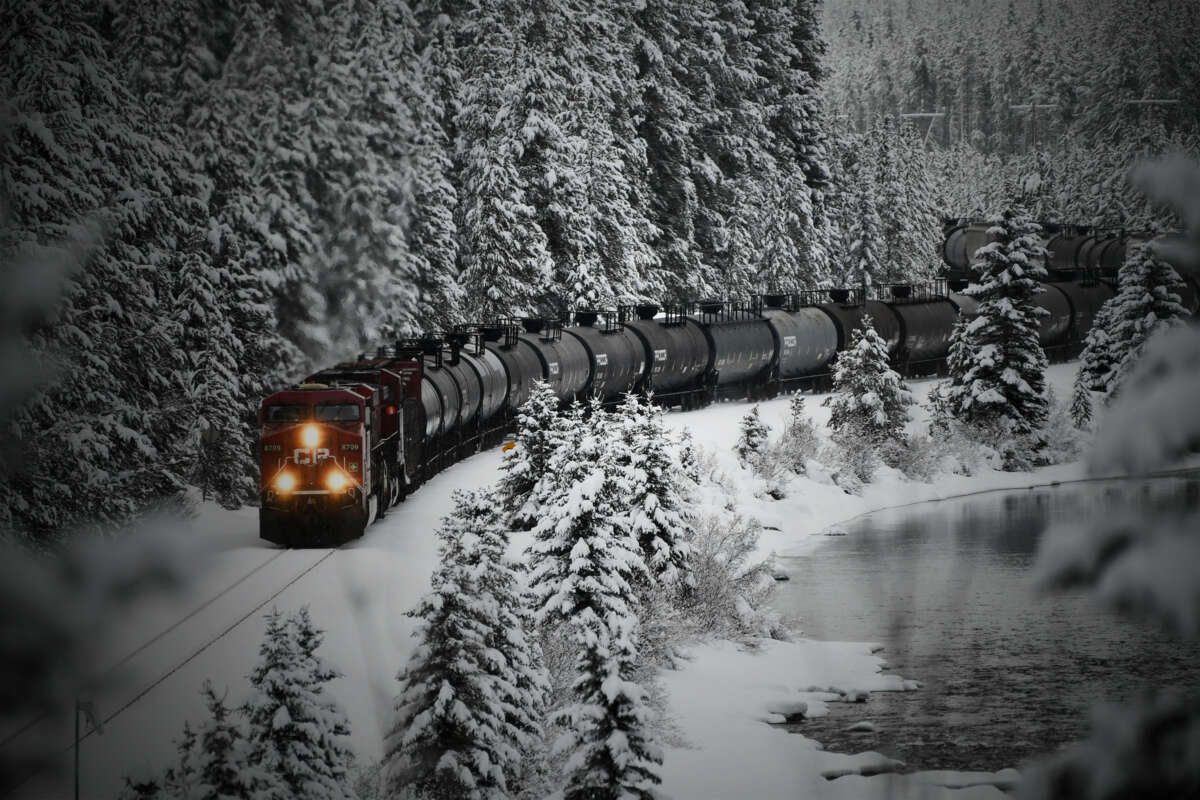Support justice-driven, accurate and transparent news — make a quick donation to Truthout today!
U.S. federal regulators on Wednesday approved the first major railroad merger in more than two decades, a move that follows the East Palestine rail disaster and that critics warned would reduce competition, raise prices, cost jobs, and threaten safety.
The Surface Transportation Board (STB) approved Canadian Pacific Railway Limited’s proposed $31 billion acquisition of Kansas City Southern Railway Company, a merger that will create a single railroad linking Canada, the United States, and Mexico. The agency said the merger will take roughly 64,000 truckloads off the road and add more than 800 union jobs.
“The decision includes an unprecedented seven-year oversight period and contains many conditions designed to mitigate environmental impacts, preserve competition, protect railroad workers, and promote efficient passenger rail,” STB said, adding that it “also anticipates the merger will result in improvements in safety and the reduction of carbon emissions.”
However, opponents of the deal pointed to the East Palestine, Ohio disaster and other recent railroad accidents, which they said underscored the need for a more cautious approach to consolidation.
“The merger brings the total number of Class 1 railroads to six, down from over 100 just a few decades ago,” the progressive news site More Perfect Union noted on Twitter. “Corporate consolidation in the railroad industry compromises safety and risks lives by prioritizing profits and cutting corners to reduce costs.”
“Despite concerns from small towns and suburban Chicago cities, the STB ruled, based on data provided by industry, that the only community and environmental impacts of the merger would be an increase in noise,” More Perfect Union continued.
“The Biden administration has taken a strong antitrust stance by blocking the $3.8 billion JetBlue-Spirit merger and urging the STB to do the same for Canadian Pacific-Kansas City Southern (CP-KCS), citing the need to promote competition in the railroad industry,” the outlet said.
“Shame on STB for disregarding both the administration and the rail workers who know all too well that corporate consolidation leads to a more dangerous rail industry,” More Perfect Union added. “The last thing we need is another merger right now.”
U.S. Sen. Elizabeth Warren (D-Mass.) — who earlier this month wrote to STB Chair Martin Oberman asking the agency to reject the merger — similarly tweeted that “we don’t need another rail merger that’ll crush competition, reduce safety, increase prices, and destroy jobs.”
U.S. Rep. Raja Krishnamoorthi (D-Ill.), who represents some Chicago suburbs through which the new international railway will run, wrote on Twitter Tuesday that “even before the disaster in Ohio, I had been warning about the threats to communities in my district that would come from a potential CP-KCS merger.”
Itasca, Illinois Administrator Carie Anne Ergo — who chairs the Stop CPKCS Coalition — told The Washington Post that “the tragedy in Ohio is an illustration of what we’ve been talking about can happen.”
“If what happened in East Palestine happened here in Itasca, the entire community would need to evacuate,” she added. “It’s terrifying.”
Holding Trump accountable for his illegal war on Iran
The devastating American and Israeli attacks have killed hundreds of Iranians, and the death toll continues to rise.
As independent media, what we do next matters a lot. It’s up to us to report the truth, demand accountability, and reckon with the consequences of U.S. militarism at this cataclysmic historical moment.
Trump may be an authoritarian, but he is not entirely invulnerable, nor are the elected officials who have given him pass after pass. We cannot let him believe for a second longer that he can get away with something this wildly illegal or recklessly dangerous without accountability.
We ask for your support as we carry out our media resistance to unchecked militarism. Please make a tax-deductible one-time or monthly donation to Truthout.
